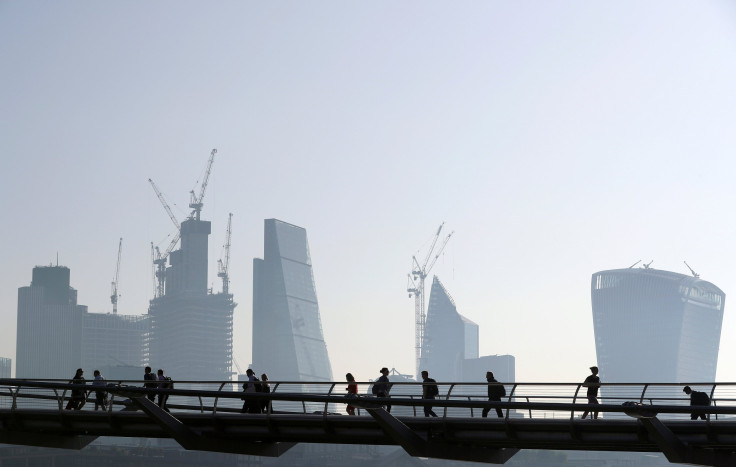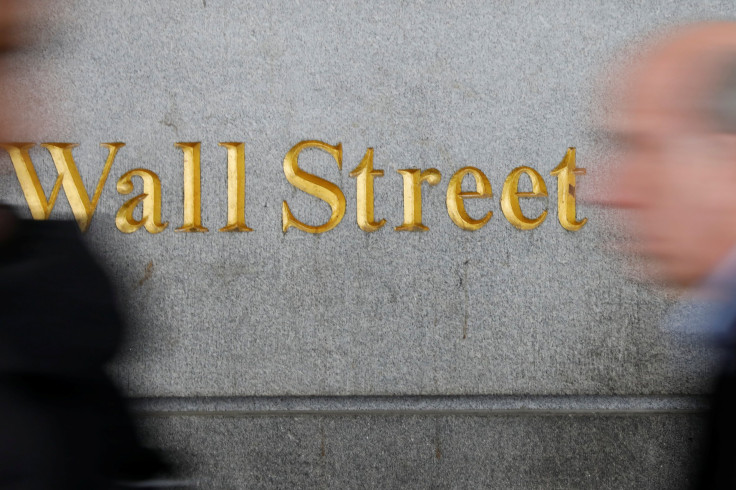Why Russia's 'dirty money' is not leaving London any time soon

Russian “dirty money” is a security threat to the UK, according to a report called “Moscow’s Gold”, just published by a committee of members of parliament. The threat is based on the argument that London has been harbouring flows of Russian capital, many of which has suspicious origin. The argument itself is not new. So much so that ill-gotten money from Russia flowing through London has long featured in popular culture. You can even go on an organised kleptocracy tour around London.
But what is missing in Moscow’s Gold is a broader understanding of why Russian (and non-Russian money for that matter) flows into London and the UK in the first place. This requires an insight into how global financial centres operate.
Liquidity – defined here both as a pool of capital and the ability to raise and trade it – is paramount to the functioning of any meaningful financial centre. As in any market, there needs to be a reliable supply and demand for liquidity.
There are two main types of financial centres in the world:
The financial centre that emerges organically, out of the strengths of the underlying economy. Wall Street has historically reflected the large scale and scope of the US domestic market. Tokyo became a thriving financial hub in the 1980s, when Japan was the second largest economy in the world. Today, Hong Kong and Shanghai reflect the rising economy of China. Located in thriving economies, these organic financial centres have a deep supply and a reliable demand for capital.
Beginning in the late 1950s, a new type of a financial centre emerged. These are known as international financial centres or offshore financial centres. These do not have an underlying pool of liquidity, nor are they located in economies with a large thriving demand for capital.
The City of London falls into the second category. Although the UK is the sixth largest economy in the world, it is the world’s largest financial centre). This means that whereas, for instance, the US can rely on large sources of liquidity provided by the trade in US Treasury bonds and other financial instruments, the UK has to rely on other – external – sources of funds.

The City of London has two such sources. One is the EU. The other is emerging markets, of which Russia is one.
As a global financial centre, London has been welcoming to Russian money, whatever its origin, but equally so to in-flows from the Gulf, capital flight from China, India, Nigeria and elsewhere.
Beyond Russia
But capital comes at a cost. It often serves political regimes, many of which top the world’s corruption ranking. These costs apply to most emerging markets, and Russia is by no means exclusive here, nor is it the most corrupt, according to Transparency International’s latest ranking.
Days when an aspiring oligarch could show up with a suitcase of cash and easily convert it into a piece of real estate in London are gone. Over the past two decades, there has been a tightening of financial regulations and money laundering rules, led by the OECD and increasingly by the EU. Many of these initiatives were not welcomed by some sections of the City.
Even the most recent – and probably the most meaningful – initiative by the UK parliament to push British overseas territories to publish lists of who owns and controls the overseas entities that own UK property or participate in UK government procurement has seen Cayman Islands officials rushing to London and Brussels to “discuss the issue”.
Meanwhile, you can still buy a UK Ltd, English LLP or a Scottish partnership as a ready-made ‘offshore package’ (complete with corporate and legal documentation for the Seychelles or Belize, as well as bank accounts), for under US$1,000. Latest figures from the Central Bank of Russia list Cyprus, Switzerland, Singapore, the Bahamas, Luxembourg and Jersey as top destinations for Russian investment abroad.
The report comes at a timely moment for the City of London. Brexit endangers the main source of liquidity to the City – the EU. Whatever the risks stemming from other capital sources, which there are many, I cannot see how the UK can jeopardise its link to this second pool of funds as well. As we have seen elsewhere, one of the effects of Brexit has been cosying up to less savoury regimes like Saudi Arabia and Turkey, as the UK’s political options become increasingly limited.
The report is therefore unlikely to change the flow of Russian money into Britain. Or any foreign money, for that matter. The UK’s options as a global financial centre are narrowing. And, considering that London accommodates a variety of political regimes from around the world, the UK has no specific rules tailored for the Russians. Any regulatory change would therefore require a profound overhaul of a whole set of corporate, legal and financial norms that govern the UK’s financial system.
With the UK’s options narrowing post-Brexit, I simply do not see this happening.
Anastasia Nesvetailova, Professor of IPE, Director of City Political Economy Research Centre (CITYPERC), City, University of London
This article was originally published on The Conversation. Read the original article.





















